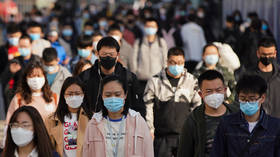China’s birth rate drops to record low

Mainland China’s birth rate dropped to a record low in 2021, continuing a downward trend that prompted Beijing to allow couples to have up to three children, amending its long-running one-child policy.
China’s National Bureau of Statistics recorded 10.62 million births, or only 7.5 births per 1,000 people, last year – the lowest birth rate since the founding of the People’s Republic of China in 1949.
The number of births barely outnumbered deaths, with the natural growth only 0.034%, a low not reached since 1960 when the great famine killed tens of millions of people and sparked a major population decline.
Births in 2021 dropped 11.6% from 12.02 million in 2020, though this was less dramatic than the previous decline of 18% from 14.65 million in 2019. The birth rate has now declined for five straight years, with the last significant growth recorded in 2016.
Demographic experts are concerned that the population is plummeting faster than expected and putting further pressure on officials to adopt new policies to improve the situation.
Huang Wenzheng, a demography expert for the Beijing-based Center for China and Globalization, said that birth numbers are likely to fluctuate in the 10 million range before declining further in the absence of more policy changes.
“Career advancements could be tied to whether you have children or not; economic incentives; or even direct cash payouts by society to meet the cost of raising a family,” Huang suggested to Reuters.
In the wake of the sinking birth rate and rapidly aging population, the Chinese government has been ramping up efforts to encourage people to have more children.
In addition to allowing couples to have up to three children in 2021, officials have also adopted policies aimed at reducing financial pressure on families and creating more beneficial conditions for raising children.
Last year, the government banned for-profit after-school tuition, while certain provinces amended their family planning policies and extended maternity leave up to 350 days.
China abolished its decades-long one-child policy in 2015 and allowed families to have up to two children in an effort to stem the decline and shrinking workforce.
However, after a brief increase in 2016 the birth rate continued to decline and the government said it would allow families to have three children last year.













